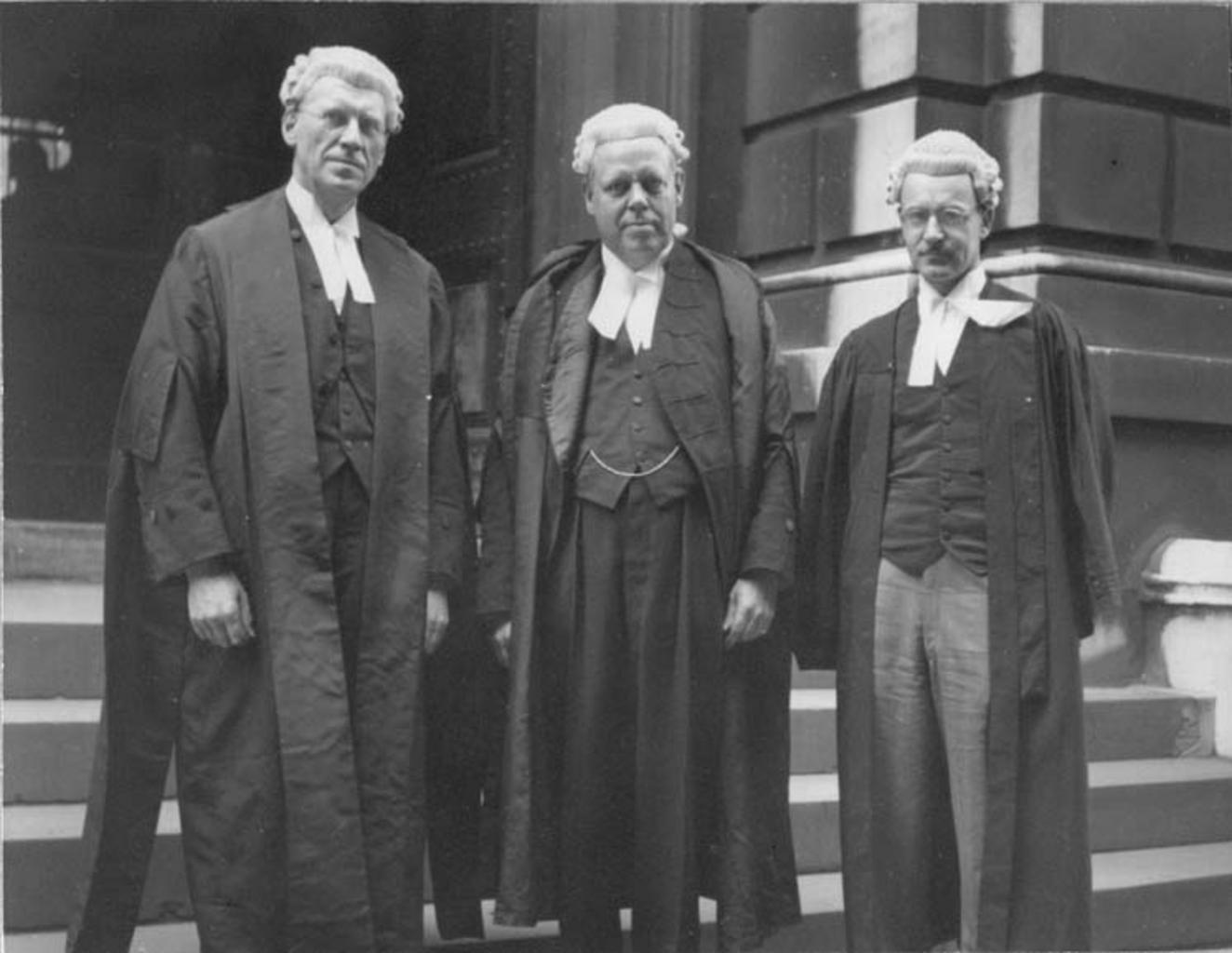Bank of Am., NA v. Kessler, 2021 NY Slip Op 6979 - NY: Appellate Div., 2nd Dept. December 15, 2021:
"DUFFY, J.
This appeal requires this Court to address the issue of how exacting
the requirement of strict compliance is with respect to the "separate
envelope" mandate of RPAPL 1304; to wit, in a mortgage foreclosure
action, how should the "separate envelope" requirement of RPAPL 1304(2),
which provides that "notices required by this section shall be sent . .
. in a separate envelope from any other mailing or notice," be
construed?
For the reasons that follow, we find that the Supreme Court properly
determined that the plaintiff failed to comply with the strict
requirements of RPAPL 1304, and thus, a condition precedent to this
foreclosure action was not met. As such, the court properly denied those
branches of the plaintiff's motion which were for summary judgment on
the complaint insofar as asserted against the defendants Andrew Kessler
and Reiko Kessler (hereinafter together the defendants), for summary
judgment dismissing the defendants' second, third, and fourth
affirmative defenses, and for an order of reference, and granted Andrew
Kessler's cross motion for summary judgment dismissing the complaint
insofar as asserted against him.
Background of the Action
As is relevant to this appeal, in March 2014, the plaintiff commenced
this action against, among others, the defendants to foreclose a
mortgage on real property located in Croton-on-Hudson, Westchester
County. The plaintiff alleged, among other things, that it was the owner
and holder of the note and the mortgage at issue and that Andrew
Kessler defaulted in payment of the mortgage as of September 2013.
Thereafter, the plaintiff moved, inter alia, for summary judgment on the
complaint insofar as asserted against the defendants, for summary
judgment dismissing the defendants' second, third, and fourth
affirmative defenses, and for an order of reference. Andrew Kessler
opposed the plaintiff's motion and cross-moved for summary judgment
dismissing the complaint insofar as asserted against him on the ground
that the plaintiff failed to comply with RPAPL 1304. In an order dated
November 30, 2017 (hereinafter the November 2017 order), the Supreme
Court denied the plaintiff's motion and granted Andrew Kessler's cross
motion. The plaintiff appeals from so much of the November 2017 order as
denied those branches of the plaintiff's motion which were for summary
judgment on the complaint insofar as asserted against the defendants,
for summary judgment dismissing the defendants' second, third, and
fourth affirmative defenses, and for an order of reference, and granted
Andrew Kessler's cross motion. We affirm.
Statutory Interpretation
In matters of statutory interpretation, the primary consideration is to discern and give effect to the Legislature's intention (see Yatauro v Mangano, 17 NY3d 420, 426).
"[T]he text of a provision `is the clearest indicator of legislative
intent and courts should construe unambiguous language to give effect to
its plain meaning'" (Matter of Albany Law School v New York State Off. of Mental Retardation & Dev. Disabilities, 19 NY3d 106, 120, quoting Matter of DaimlerChrysler Corp. v Spitzer, 7 NY3d 653, 660; see Majewski v Broadalbin-Perth Cent. School Dist., 91 NY2d 577, 583). "When the plain language of the statute is precise and unambiguous, it is determinative" (Matter of Washington Post Co. v New York State Ins. Dept., 61 NY2d 557, 565; see Loehr v New York State Unified Ct. Sys., 150 AD3d 716, 720). Here, the language of the statute is clear, precise, and unambiguous.
Specifically, RPAPL 1304, in effect at the time this action was commenced, provides as follows:
"Required prior notices.
"1. Notwithstanding any other provision of law, with regard
to a home loan, at least ninety days before a lender, an assignee or a
mortgage loan servicer commences legal action against the borrower, or
borrowers at the property address and any other address of record,
including mortgage foreclosure, such lender, assignee or mortgage loan
servicer shall give notice to the borrower in at least fourteen-point
type which shall include the following:
. . .
"2. The notices required by this section shall be sent by
such lender, assignee (including purchasing investor) or mortgage loan
servicer to the borrower, by registered or certified mail and also by
first-class mail to the last known address of the borrower, and to the
residence that is the subject of the mortgage. The notices required by
this section shall be sent by the lender, assignee or mortgage loan
servicer in a separate envelope from any other mailing or notice.
Notice is considered given as of the date it is mailed. The notices
required by this section shall contain a current list of at least five
housing counseling agencies serving the county where the property is
located from the most recent listing available from department of
financial services. The list shall include the counseling agencies' last
known addresses and telephone numbers. The department of financial
services shall make available on its websites a listing, by county, of
such agencies. The lender, assignee or mortgage loan servicer shall use
such lists to meet the requirements of this section" (emphasis added).
RPAPL 1304 "contains specific, mandatory language in keeping with the
underlying purpose of [the Home Equity Theft Prevention Act] to afford
greater protections to homeowners confronted with foreclosure" (Aurora Loan Servs., LLC v Weisblum, 85 AD3d 95, 103),
and the language in RPAPL 1304(2) with regard to the manner of service
of the required notices "in a separate envelope from any other mailing
or notice" "is equally precise" (Aurora Loan Servs., LLC v Weisblum, 85 AD3d at 104
[internal quotation marks omitted]). Strict compliance with the
requisite RPAPL 1304 notices to the borrower or borrowers is a condition
precedent to the commencement of a foreclosure action (see CV XXVII, LLC v Trippiedi, 187 AD3d 847, 850; USBank N.A. v Haliotis, 185 AD3d 756, 758). The plaintiff has the burden of establishing its strict compliance with this condition (see USBank N.A. v Haliotis, 185 AD3d at 758; Aurora Loan Servs., LLC v Weisblum, 85 AD3d at 106).
Since, among other requirements, such notice must be sent "in a
separate envelope from any other mailing or notice" (RPAPL 1304[2]), we
hold that inclusion of any material in the separate envelope sent to the
borrower under RPAPL 1304 that is not expressly delineated in these
provisions constitutes a violation of the separate envelope requirement
of RPAPL 1304(2).
This strict approach precluding any additional material in the same
envelope as the requisite RPAPL 1304 notices not only comports with the
statutory language, it also provides clarity as a bright-line rule to
plaintiff lenders and "promotes stability and predictability" (Freedom Mtge. Corp. v Engel, 37 NY3d 1, 20) in foreclosure proceedings.
Legislative History of RPAPL 1304
We note that this strict interpretation of the "separate envelope"
requirement is consistent with the Legislature's intent. RPAPL 1304 was
first enacted by the New York Legislature and signed by the Governor of
New York in 2008, along with a series of additional amendments to laws
governing mortgage foreclosure proceedings (see L 2008, ch 472, §
2 [eff Sept. 1, 2008]). The statute requires that, at least 90 days
prior to the commencement of a foreclosure action, a lender must give a
borrower certain written notice (see RPAPL 1304[1]). Subdivision (1) of the statute sets forth the specific language that the 90-day notice "shall include" (id.), and subdivision (2) specifies how the requisite RPAPL 1304 notices must be sent (see id.
§ 1304[2]). In 2009, several amendments to RPAPL 1304 were enacted,
effective in January 2010, which added a new sentence to RPAPL 1304(2)
to include the requirement that the requisite RPAPL 1304 notice shall be
sent in "a separate envelope from any other mailing or notice" (id. § 1304[2]; see
L 2009, ch 507, § 1-a [eff Jan. 14, 2010]). Notably, the "separate
envelope" requirement of RPAPL 1304 appears to be exclusive to this
section and is not found in other notice provisions applicable to
mortgage foreclosure proceedings (see e.g. RPAPL 1303, 1305; see also
UCC 9-611). Although RPAPL 1304 has been amended since its adoption in
2008, the "separate envelope" provision which was added to RPAPL 1304 in
2009 has consistently remained (see e.g. L 2009, ch 507, § 1-a
[eff Jan. 14, 2010]; L 2011, ch 62, part A, § 104 [eff Oct. 3, 2011]; L
2012, ch 155, § 84 [eff July 18, 2012]; L 2012, ch 155, § 85; L 2016, ch
73, part Q, §§ 6, 7 [eff Dec. 20, 2016]; L 2017, ch 58, part FF, § 1
[eff Dec. 20, 2016]; L 2018, ch 58, part HH, §§ 1, 5 [eff Apr. 12, 2018,
deemed eff Apr. 20, 2017]; L 2018, ch 58, part HH, §§ 3, 4 [eff May 12,
2018]). Moreover, we note that, since its enactment, RPAPL 1304 has
expressly set forth in detail the content and the nature of how the
notices are required to be sent pursuant to its terms (see e.g. L
2008, ch 472, § 2 [eff Sept. 1, 2008], as amended by L 2009, ch 507, §
1-a [eff Jan. 14, 2010]; L 2011, ch 62, part A, § 104 [eff Oct. 3,
2011]; L 2012, ch 155, § 84 [eff July 18, 2012]; L 2012, ch 155, § 85; L
2016, ch 73, part Q, §§ 6, 7 [eff Dec. 20, 2016]; L 2017, ch 58, part
FF, § 1 [eff Dec. 20, 2016]; L 2018, ch 58, part HH, §§ 1, 5 [eff Apr.
12, 2018, deemed eff Apr. 20, 2017]; L 2018, ch 58, part HH, §§ 3, 4
[eff May 12, 2018]).
Policy Considerations
Construing the "separate envelope" requirement of RPAPL 1304 as
exacting also addresses recent concerns articulated by the Court of
Appeals when it "[a]dopt[ed] a clear rule that will be easily understood
by the parties and can be consistently applied by the courts" in
mortgage foreclosure cases involving statute of limitations issues (Freedom Mtge. Corp. v Engel, 37 NY3d at 19). In Freedom Mtge. Corp. v Engel,
the Court of Appeals set forth a bright-line rule in mortgage
foreclosure cases that a lender's voluntary discontinuance of a prior
foreclosure action constitutes a revocation of its election to
accelerate the debt, absent a contemporaneous statement by that
noteholder to the contrary (see id.). In its discussion of the
application of the statute of limitations, the Court of Appeals
"emphasized the need for reliable and objective rules permitting
consistent application" (id. at 20). More significantly, with
respect to evaluating the import of RPAPL 1304, the Court of Appeals
expressly recognized that "the legislature has imposed exacting
standards for bringing a foreclosure claim—e.g., prescribing the precise
method of providing pre-suit notice to the borrower (see RPAPL 1304)" (Freedom Mtge. Corp. v Engel, 37 NY3d at 23, n 4).
This Court, in USBank N.A. v Haliotis (185 AD3d at 758-759), as well as our sister court, the Appellate Division, Third Department, in Tuthill Fin., a Ltd. Partnership v Candlin (129 AD3d 1375, 1376),
have already implemented this strict compliance approach with respect
to the separate envelope requirement. In each case, this Court and the
Third Department, respectively, found that the plaintiff lender failed
to establish its requisite compliance with the RPAPL 1304 notice
requirements because, among other things, the records did not show that
the RPAPL 1304 notice was "served in an envelope that was separate from
any other mailing or notice" (USBank N.A. v Haliotis, 185 AD3d at 758-759; see Tuthill Fin., a Ltd. Partnership v Candlin, 129 AD3d at 1376; see e.g. Emigrant Mtge. Co., Inc. v Persad, 117 AD3d 676, 677).
Flexible Standard Unworkable
In articulating this bright-line rule that compliance with the
"separate envelope" requirement of RPAPL 1304 mandates that no material
other than the notices specifically described in RPAPL 1304 be contained
in that envelope, we expressly reject the position of the plaintiff
that an analysis undertaken by certain trial courts in New York should
apply; to wit, that a court should evaluate whether the additional
material contained in the envelope sent by the lender pursuant to RPAPL
1304 prejudices or assists the borrower when ascertaining the lender's
compliance with the "separate envelope" requirement of RPAPL 1304 (see e.g. Deutsche Bank Natl. Trust Co. v Delisser,
Sup Ct, Suffolk County, Sept. 14, 2017, Heckman, J., Index No. 8685/13
[no violation of RPAPL 1304 where defendant failed to show prejudice
from lender's inclusion of notice to veterans and notice regarding
consumer rights]). Nor do we agree with our dissenting colleague's
assertion, and some trial courts that have found, that the language of
RPAPL 1304(1) is nonexclusive with respect to other information that can
be included in the envelope as long as the information in the envelope
also contains the specific language set forth in the statute (see e.g. Citimortgage, Inc. Sbm ABN Amro Mortgage Group, Inc. v Bunger, 58 Misc 3d 333, 341
[Sup Ct, Suffolk County] [inclusion of additional notice referring to
quality controls on phone calls, advisement to give the letter to the
party's attorney, and language setting forth debtors' rights in
bankruptcy in same envelope with the requisite RPAPL 1304 notices did
not violate RPAPL 1304(2)]). We also reject the fact-intensive analyses
adopted by some trial courts which focus on whether the additional
information in the RPAPL 1304 envelope is included as a separately
paginated sheet of paper or some other physical demarcation of the
information exists, or whether the additional information is on the same
page as the requisite notice—suggesting that the latter would preclude a
finding that the separate envelope requirement was not complied with
but the former would not (see e.g. Beneficial Homeowner Serv. Corp. v Jordon-Thompson,
57 Misc 3d 1213[A], 2017 NY Slip Op 51424[U], *4 [Sup Ct, Suffolk
County]). Likewise, we reject the plaintiff's contention that this Court
should follow the determination of some trial courts in concluding that
the inclusion of additional notices in the envelope along with the
requisite RPAPL 1304 notice is a de minimis deviation from the
requirements of the statute and, thus, does not constitute a failure to
comply with the separate envelope requirement (see e.g. Deutsche Bank Natl. Trust Co. v Bonal,
Sup Ct, Suffolk County, Oct. 23, 2017, Heckman, J., Index No.
61217/13). We also disagree with our dissenting colleague's contention
that "clarifying language" that a plaintiff includes in the envelope
with the requisite RPAPL 1304 notice, such as language concerning the
rights of a debtor in bankruptcy or in the military service, or any
language that may be relevant to the warnings in RPAPL 1304, falls
within the prescriptions of RPAPL 1304 and does not require a separate
envelope.
As an initial matter, we find that such approaches could entirely
vitiate the unambiguous requirement imposed by the Legislature of a
"separate envelope" for the purposes of mailing the requisite notice
under RPAPL 1304. Such a requirement could also place the burden on a
defendant to show a lack of prejudice or show that the information is
not relevant to the notice mandated under RPAPL 1304, rather than on the
plaintiff to show compliance. Moreover, such analyses, which purport to
interpret what the Legislature intended, rather than what it said,
would require courts to engage in exactly the type of judicial scrutiny
that the Court of Appeals has recently rejected in mortgage foreclosure
cases (see Freedom Mtge. Corp. v Engel, 37 NY3d at 30-31). In Freedom Mtge. Corp. v Engel,
the Court of Appeals, holding that a lender's voluntary discontinuance
of an action, without more, constitutes a revocation of the lender's
election to accelerate the debt, determined that an exploration of the
lender's intent and scrutinization of "the course of the parties'
post-discontinuance conduct and correspondence" was "unworkable from a
practical standpoint" and would require a court to engage in an
"exhaustive examination" of the parties' conduct (id. at 30).
This same sort of unworkable exercise would be required in order for a
court to ascertain whether the additional material included by a lender
in the envelope with the requisite notice under RPAPL 1304 constitutes
information relevant, helpful, or prejudicial to the borrower. Under
such analyses, a lender could argue that any additional material
included in the envelope that may be construed as helpful or is neither
deceptive nor prejudicial to the borrower meets the requirements of
RPAPL 1304. In opposition, the borrower could argue that the myriad of
information provided by the lender in the envelope overshadowed the
requisite notice under RPAPL 1304 such that the borrower failed to
recognize its import or did not even see it in the pages sent. Such
analyses into the parties' subjective perceptions are impracticable.
Moreover, to the extent that the Legislature adopted the "separate
envelope" requirement to obviate a borrower becoming confused or
distracted by extraneous information, such analyses are inconsistent
with the legislative intent and plain language of RPAPL 1304. Indeed, we
find that the approach taken by the Court of Appeals in Freedom Mtge. Corp. v Engel
is instructive in analyzing compliance with RPAPL 1304(2): "The
determinative question is not what the [lender] intended or the borrower
perceived" (Freedom Mtge. Corp. v Engel, 37 NY3d at 23),
nor for the court to decide what other additional notices might or
might not be permissible, but rather, given the clear and unambiguous
language of the statute, whether the lender complied with the separate
envelope requirement of RPAPL 1304(2).
Nor will our determination as to strict compliance with the dictates
of RPAPL 1304(2) undermine the legislative goal of providing information
about additional protections and foreclosure prevention opportunities
to homeowners at risk of losing their homes (see Senate
Introducer's Mem in Support, Bill Jacket, L 2008, ch 472 at 7), as
nothing in RPAPL 1304 prohibits a lender from mailing, in other
envelopes, notices to a borrower—whether such notices be federally
mandated or consist of any other notice or information that may assist a
homeowner to avoid foreclosure. RPAPL 1304(2) simply requires that the
notices required by its provisions be mailed in a separate envelope from
those other notices.
The Plaintiff Failed to Comply with RPAPL 1304
Here, the plaintiff acknowledged that the envelope that it sent to
the defendants, which contained the requisite notice under RPAPL 1304,
also included other information in two notices pertaining to the rights
of a debtor in bankruptcy and in military service. Since the plaintiff
failed to establish, prima facie, that it strictly complied with the
requirements of RPAPL 1304, the Supreme Court properly denied those
branches of its motion which were for summary judgment on the complaint
insofar as asserted against the defendants, for summary judgment
dismissing the defendants' second, third, and fourth affirmative
defenses, and for an order of reference (see e.g. USBank N.A. v Haliotis, 185 AD3d at 758-759; Citibank, N.A. v Conti-Scheurer, 172 AD3d 17, 21).
Further, on his cross motion, Andrew Kessler established his prima
facie entitlement to judgment as a matter of law dismissing the
complaint insofar as asserted against him by showing that the plaintiff
failed to comply with RPAPL 1304 when it sent additional material in the
same envelope as the requisite notice under RPAPL 1304. In opposition,
the plaintiff failed to raise a triable issue of fact.
Conclusion
The plaintiff's remaining contentions are without merit.
Accordingly, for the reasons set forth herein, the Supreme Court
properly denied those branches of the plaintiff's motion which were for
summary judgment on the complaint insofar as asserted against the
defendants, for summary judgment dismissing the defendants' second,
third, and fourth affirmative defenses, and for an order of reference,
and properly granted Andrew Kessler's cross motion for summary judgment
dismissing the complaint insofar as asserted against him.
The order is affirmed insofar as appealed from.
LASALLE, P.J., and MASTRO, J., concur.
ORDERED that the order is affirmed insofar as appealed from, with costs.
MILLER, J., dissents, and votes to reverse the order insofar as
appealed from, on the law, grant those branches of the plaintiff's
motion which were for summary judgment on the complaint insofar as
asserted against the defendants Andrew Kessler and Reiko Kessler, for
summary judgment dismissing the second, third, and fourth affirmative
defenses of those defendants, and for an order of reference, and deny
the cross motion of the defendant Andrew Kessler for summary judgment
dismissing the complaint insofar as asserted against him, with the
following memorandum:
The additional language included on page seven of the RPAPL 1304
notice that was received by the borrower in this case did not violate
any of the content provisions of that statute (see id. §
1304[1]). Nor did the additional language frustrate the statute's
overarching purpose or intent. Since the additional language was
relevant to, and in fact clarified, the warnings and instructions
mandated by the statute, it did not constitute a separate "mailing or
notice" (id. § 1304[2]), and was properly included in "[t]he notice[ ] required by this section" (id.).
In the absence of an explicit prohibition against such additional
language in a valid RPAPL 1304(1) notice, the statute should not be
extended beyond its plain language in a manner that renders every
inconsequential addition fatal. Both common sense and settled principles
of statutory construction support this view. For although the
requirements of the statute must be strictly complied with, the statute
itself must be strictly construed in the first instance. The failure to
do so here is error, as a matter of law. Accordingly, I must
respectfully dissent.
On September 11, 2009, the defendant Andrew Kessler (hereinafter the
borrower) executed a note in which he promised to repay a loan in the
principal sum of $590,302, plus interest. The note was secured by a
mortgage of the same date, encumbering certain real property located in
Croton-on-Hudson, New York. The mortgage was executed by the borrower
and the defendant Reiko Kessler (hereinafter together the homeowners).
By summons and complaint, both dated March 27, 2014, the plaintiff
commenced this action against the homeowners and another defendant to
foreclose the mortgage. The complaint alleged that the borrower had
defaulted under the terms of the note and mortgage by failing to make
the required monthly payment that was due on September 1, 2013, and by
failing to make all of the required monthly payments due thereafter.
Copies of the note and mortgage were annexed to, and referenced in, the
complaint.
In a paper denominated "Proposed Amended Answer," the homeowners
"den[ied] knowledge or information sufficient to form a belief as to the
truth of the allegations contained in each and every paragraph [of the]
Plaintiff's Complaint." In addition to this blanket denial, the
homeowners asserted four affirmative defenses. As relevant here, the
fourth affirmative defense alleged, inter alia, that the plaintiff
failed to comply with RPAPL 1304.
The plaintiff subsequently moved for, among other relief, summary
judgment on the complaint insofar as asserted against the homeowners,
summary judgment dismissing the homeowners' second, third, and fourth
affirmative defenses, and for an order of reference. The borrower
cross-moved for summary judgment dismissing the complaint insofar as
asserted against him on the ground that the plaintiff failed to comply
with RPAPL 1304.
In an order dated November 30, 2017, the Supreme Court concluded that
the plaintiff had sustained its prima facie burden in support of its
motion, but that, in opposition and in support of his cross motion, the
borrower had successfully demonstrated that the plaintiff failed to
comply with RPAPL 1304. Accordingly, the court denied the plaintiff's
motion and granted the borrower's cross motion. The plaintiff appeals.
On appeal, the plaintiff contends, inter alia, that the court erred in
concluding that the plaintiff failed to comply with RPAPL 1304. The
plaintiff is correct.
"[A]n RPAPL 1304 notice is a notice pursuant to the Home Equity Theft
Prevention Act (Real Property Law § 265-a; hereinafter HETPA), the
underlying purpose of which is `to afford greater protections to
homeowners confronted with foreclosure'" (Bank of N.Y. Mellon v Forman, 176 AD3d 663, 665, quoting Aurora Loan Servs., LLC v Weisblum, 85 AD3d 95, 103; see generally 264 Siegel's Practice Review, When
Does P's Proof of Service Suffice to Make D's Mere Denial of Receipt
Ineffective? Treatment of Service Inadequacies in Foreclosure Cases
Turns Into Broader Treatment for All Cases at 1 [Dec. 2013]).
"Where a loan is a home loan for the borrower's principal residence,
the mortgage creditor contemplating a mortgage foreclosure action is
required, pursuant to RPAPL 1304, to serve the borrower with notice of
his or her default in a specified form by registered or certified mail
and first class mail at least 90 days prior to the commencement of the
action" (Flagstar Bank, FSB v Jambelli, 140 AD3d 829, 830 [citation omitted]; see RPAPL 1304[1], [2], [6][a][1][iii]).
RPAPL 1304(1) provides that the relevant
"lender, assignee or mortgage loan servicer shall give
notice to the borrower in at least fourteen-point type which shall
include the following:
`YOU MAY BE AT RISK OF FORECLOSURE. PLEASE READ THE FOLLOWING NOTICE CAREFULLY'
`As of ___, your home loan is ___ days and ___ dollars in
default. Under New York State Law, we are required to send you this
notice to inform you that you are at risk of losing your home.
Attached to this notice is a list of government approved housing
counseling agencies in your area which provide free counseling. You can
also call the NYS Office of the Attorney General's Homeowner Protection
Program (HOPP) toll-free consumer hotline to be connected to free
housing counseling services in your area at 1-855-HOME-456
(1-855-466-3456), or visit their website at http://www.aghomehelp.com/. A
statewide listing by county is also available at
http://www.dfs.ny.gov/consumer/mortg nys np counseling agencies.htm.
Qualified free help is available; watch out for companies or people who
charge a fee for these services.
Housing counselors from New York-based agencies listed on the website
above are trained to help homeowners who are having problems making
their mortgage payments and can help you find the best option for your
situation. If you wish, you may also contact us directly at _________
and ask to discuss possible options.
While we cannot assure that a mutually agreeable resolution is
possible, we encourage you to take immediate steps to try to achieve a
resolution. The longer you wait, the fewer options you may have.
If you have not taken any actions to resolve this matter within 90
days from the date this notice was mailed, we may commence legal action
against you (or sooner if you cease to live in the dwelling as your
primary residence).
If you need further information, please call the New York State
Department of Financial Services' toll-free helpline at (show number) or
visit the Department's website at (show web address).[']"
"The notice warns the homeowner, in essence, that their mortgage is
in default, placing the homeowner at risk of losing the home, and
specifying the amount of arrears that needed to be paid in order to cure
the default" (Mark C. Dillon, Unsettled Times Make Well-Settled Law:
Recent Developments in New York State's Residential Mortgage
Foreclosure Statutes and Case Law, 76 Alb L Rev 1085, 1110
[2012-2013]). "[T]he notice advises that if the default issues are not
resolved within ninety days, a foreclosure action may be commenced
against the homeowner" (id. at 1110).
"The notice must also inform the homeowner of government approved
housing counseling agencies that provide free or low-cost housing
advice" (id.). "The number of government approved housing
counselors identified in the notice shall be at least five, along with
their last known addresses and telephone numbers" (id. at 1110-1111; see USBank N.A. v Haliotis, 185 AD3d 756, 758). "The notice must also encourage the homeowner to contact one of the counseling agencies" (Mark C. Dillon, Unsettled
Times Make Well-Settled Law: Recent Developments in New York State's
Residential Mortgage Foreclosure Statutes and Case Law, 76 Alb L Rev at 1110).
As indicated, "[t]he notices required by [RPAPL 1304] shall be sent
by such lender, assignee . . . or mortgage loan servicer to the
borrower, by registered or certified mail and also by first-class mail
to the last known address of the borrower, and to the residence that is
the subject of the mortgage" (RPAPL 1304[2]). The statute further
provides that "[t]he notices required by this section shall be sent by
the lender, assignee or mortgage loan servicer in a separate envelope
from any other mailing or notice" (id.).
The "[c]ontent, timing, and service provisions of RPAPL 1304 are very specific and couched in mandatory language" (Aurora Loan Servs., LLC v Weisblum, 85 AD3d at 103-104; see H & R Block Bank, FSB v Liles, 186 AD3d 813, 815-816).
Where applicable, "proper service of the RPAPL 1304 notice containing
the statutorily-mandated content is a condition precedent to the
commencement of the foreclosure action" (Aurora Loan Servs., LLC v Weisblum, 85 AD3d at 103; see Flagstar Bank, FSB v Jambelli, 140 AD3d at 830 [citing RPAPL 1302]). "Strict compliance with RPAPL 1304" is required (Citibank, N.A. v Conti-Scheurer, 172 AD3d 17, 20; see Aurora Loan Servs., LLC v Weisblum, 85 AD3d at 103), "and the plaintiff has the burden of establishing satisfaction of this condition" (Aurora Loan Servs., LLC v Weisblum, 85 AD3d at 106 [citing RPAPL 1302]).
However, a "failure to comply with RPAPL 1304 is not jurisdictional" (Flagstar Bank, FSB v Jambelli, 140 AD3d at 830; see Pritchard v Curtis, 101 AD3d 1502, 1504). "Statutorily, violation of the provisions of RPAPL 1304 constitutes a defense to a home loan mortgage foreclosure action" (Pritchard v Curtis, 101 AD3d at 1504 [citing RPAPL 1302]; see Flagstar Bank, FSB v Jambelli, 140 AD3d at 830
[same]). Where the defense is properly raised, "compliance with RPAPL
1304 [is] a component of [the plaintiff's] prima facie burden" (H & R Block Bank, FSB v Liles, 186 AD3d at 817; see USBank N.A. v Haliotis, 185 AD3d at 758; Aurora Loan Servs., LLC v Weisblum, 85 AD3d at 106).
Here, on his cross motion for summary judgment dismissing the
complaint insofar as asserted against him, the borrower contended, among
other things, that the plaintiff failed to strictly comply with "the
form and content" requirements of RPAPL 1304. The borrower argued that
the plaintiff failed to strictly comply with the requirements of RPAPL
1304 because the notice that was sent to him by the plaintiff included
additional language, in both English and Spanish, which was not
explicitly required by RPAPL 1304.
In support of his cross motion, the borrower submitted, inter alia,
his own affidavit and a copy of the RPAPL 1304 notice that he allegedly
received from the plaintiff . The borrower conceded that he had received
the RPAPL 1304 notice sent to him by the plaintiff, and the notice as
reflected in the record included the applicable language set forth in
RPAPL 1304(1). However, the borrower contended that the RPAPL 1304
notice that he received from the plaintiff included language in addition
to the language that was required by RPAPL 1304(1). The borrower
contended that the inclusion of this additional language constituted a
separate notice within the meaning of RPAPL 1304(2), and therefore
violated the "separate envelope" requirement imposed in that subdivision
(id.).
The Supreme Court accepted the borrower's argument and concluded that
"as it is undisputed that plaintiff provided additional information in
the envelope along with the statutorily required information, this Court
finds that plaintiff did not strictly comply with RPAPL § 1304 and
thus, a condition precedent to the foreclosure action was not met."
In affirming the order insofar as appealed from, my colleagues in the
majority now similarly "hold that inclusion of any material in the
separate envelope sent to the borrower under RPAPL 1304 that is not
expressly delineated in these provisions constitutes a violation of the
separate envelope requirement of RPAPL 1304(2)."
Although these formulations use the terms "information" and
"material," respectively, those designations both refer to additional
language which appeared on page seven of the RPAPL 1304 notice that was
received by the borrower. Under this construction of the statute, any
language (i.e., any word, sentence, or paragraph) that is not explicitly
required by RPAPL 1304(1) constitutes, as a matter of law, a
separate "mailing or notice" within the meaning of RPAPL 1304(2). The
plain language of the statute does not support this construction.
Rather, as quoted above, the plain language merely provides that a
"lender, assignee or mortgage loan servicer shall give notice to the
borrower . . . which shall include the following [language]" (id.
§ 1304[1] [emphasis added]). The statute positively sets forth the
language that must be included in a valid RPAPL 1304 notice (see id.).
The plain language does not purport to restrict the content of a valid
notice, or prohibit the inclusion of any other language beyond that
which is explicitly required (see id.).
Indeed, this Court has recognized that "the word `includes' is
usually a term of enlargement, and not of limitation . . . it therefore
conveys the conclusion that there are other items includable, though not
specifically enumerated by the statutes" (Matter of Willow Wood Rifle & Pistol Club v Town of Carmel Zoning Bd. of Appeals, 115 AD2d 742, 744
[alterations and internal quotation marks omitted]). The Court of
Appeals has similarly recognized that the term "`[i]ncluding' may be
used to bring into a definition something that would not be there unless
specified, or it may be used to show the meaning of the defined word by
listing some of the things meant to be referred to, but not by such listing excluding others of the same kind" (Red Hook Cold Stor. Co. v Department of Labor of State of N.Y., 295 NY 1, 8 [emphasis added]).
If it had been the Legislature's intent to restrict or proscribe
additional language in a valid RPAPL 1304 notice, that intent "would
have been expressed" (Burnside v Whitney, 21 NY 148, 149). The statute could have stated that a valid RPAPL 1304(1) notice shall only
include certain language, but the Legislature chose not to employ any
such words of limitation. In its present form, there is no statutory
basis to conclude that any language beyond that which is required by
RPAPL 1304(1), however slight or innocuous, constitutes a separate
"mailing or notice" within the meaning of RPAPL 1304(2) (see id. § 1304[1]; Red Hook Cold Stor. Co. v Department of Labor of State of N.Y., 295 NY at 8; Matter of Willow Wood Rifle & Pistol Club v Town of Carmel Zoning Bd. of Appeals, 115 AD2d at 744-745).
In the absence of a specific statutory proscription against additional
content in a valid RPAPL 1304(1) notice, basic principles of statutory
construction counsel against reading such a prohibition into the
statute.
The courts of this state have long recognized that a statute in
derogation of the common law, or which infringes upon an existing common
right, must "be strictly construed" (Hayes v Davidson, 98 NY 19, 22; see Transit Commn. v Long Is. R.R. Co., 253 NY 345, 355; People v Phyfe, 136 NY 554, 559; Taylor v Mayor of City of N.Y., 82 NY 10, 10; Burnside v Whitney, 21 NY at 149; see generally
McKinney's Cons Laws of NY, Book 1, Statutes §§ 301, 311). In addition,
"[i]t is a well-settled rule . . . that a party has a right to sue on
any cause of action which he [or she] holds, and any statutory exception
to that right must be distinctly expressed" (Saxe v Peck, 139 App Div 419, 420; see Salters v Tobias, 3 Paige Ch 338 [Ch Ct 1832]).
Here, as already observed, strict compliance with RPAPL 1304 is a "condition precedent" to the commencement of such an action (Aurora Loan Servs., LLC v Weisblum, 85 AD3d at 103), and "a component of [the plaintiff's] prima facie burden" (H & R Block Bank, FSB v Liles, 186 AD3d at 817; see Aurora Loan Servs., LLC v Weisblum, 85 AD3d at 106).
These statutory requirements, which presently constitute "the
most-litigated issue in residential mortgage foreclosure [actions]" (Dan
M. Blumenthal, 2020 Supp Practice Commentaries, McKinney's Cons Laws of
NY, RPAPL 1304), plainly "limit[ ] a mortgage holder's right to
commence an action to foreclose on its mortgage" (1 Bergman on New York
Mortgage Foreclosures § 4.04B). Case law from this Court indeed reflects
that "the foreclosure provisions of RPAPL Article 13 must be strictly
construed . . . because the statute is in derogation of a
plaintiff's/mortgagee's common-law right to commence an action in
foreclosure and to recover the mortgage debt" (id.; see Valley Sav. Bank v Rose, 228 AD2d 666, 667; Dollar Dry Dock Bank v Piping Rock Blders., Inc., 181 AD2d 709, 710).
In this case, the RPAPL 1304 notice was sent by the plaintiff and
received by the borrower within the prescribed time period. The notice
itself did, in fact, "include" all of the language that the statute
required (id. § 1304[1]). Accordingly, there was "strict compliance with statutory commands as to matters of prescribed content" (Matter of Hutson v Bass, 54 NY2d 772, 774; see Red Hook Cold Stor. Co. v Department of Labor of State of N.Y., 295 NY at 8; Matter of Willow Wood Rifle & Pistol Club v Town of Carmel Zoning Bd. of Appeals, 115 AD2d at 744-745).
Inasmuch as the statute does not expressly prohibit any additional
language in "[t]he notices required by this section" (RPAPL 1304[2]),
the additional language included on page seven of the RPAPL 1304 notice
here did not violate the content provisions of RPAPL 1304(1).
Statutory support for such a prohibition is also absent from RPAPL
1304(2). That subdivision does not purport to set any restrictions on
the content of "[t]he notices required by this section" (id.).
Nor does it define the facts or circumstances that would constitute a
separate "mailing or notice" for the purposes of the "separate envelope"
requirement (id.). In the absence of such language, there is no
statutory basis to conclude that the "separate envelope" requirement is
applicable to the additional language that was included in the otherwise
valid RPAPL 1304 notice received by the borrower here (id.).
The allegedly separate "mailing or notice" in this case was
additional clarifying language, in Spanish and English, which appeared
on page seven of the RPAPL 1304 notice, after the statutorily mandated
language. The additional language advised the borrower that if he was in
bankruptcy, he was "not obligated to discuss [his] home loan with [the
plaintiff] or enter into a loan modification or other loan-assistance
program." Additional language on that page further advised the borrower
that if he or his spouse was "a member of the military," he should
contact the plaintiff "immediately" as such status could confer
"significant protections and benefits."
"The content of [an] RPAPL 1304 notice furthers the legislative
intent `to provide a homeowner with information necessary . . . to
preserve and protect home equity'" (Bank of N.Y. Mellon v Forman, 176 AD3d at 665-666, quoting Aurora Loan Servs., LLC v Weisblum, 85 AD3d at 107 [internal quotation marks omitted]; see
Real Property Law § 265-a[1][d]). The "manifest purpose [of the RPAPL
1304 notice] is to aid the homeowner in an attempt to avoid litigation" (Aurora Loan Servs., LLC v Weisblum, 85 AD3d at 107; see Bank of N.Y. Mellon v Forman, 176 AD3d at 666).
As set forth above, the additional language included in the RPAPL
1304(1) notice in this case furthered these general legislative
purposes.
Indeed, the additional language contained at the end of the RPAPL
1304 notice provided information which, if applicable, superseded the
statutorily mandated language. The additional language was clear and
unambiguous, and did not serve to negate, confuse, or otherwise impair
any of the information that the statute requires to be included in the
notice to the homeowner (see id. § 1304[1]). The additional
language was relevant to, and clarified, the statutorily mandated
language. Where, as here, the plain language of the statute has not been
violated, and where the spirit and intent of the law has not been
frustrated, the statute should not be extended in a way that transforms
every inconsequential addition into a new dispositive issue. "That seems
to [me] to be the common sense of the matter; and common sense often
makes good law" (Peak v United States, 353 US 43, 46 [Douglas, J.]).
Since the additional language in this case was relevant to, and
clarified, the warnings required by RPAPL 1304(1), it did not constitute
a separate "mailing or notice" (id. § 1304[2]), and was properly included in "[t]he notice[ ] required by this section" (id.).
The Supreme Court's failure to strictly construe the plain language of
the statute in this case constituted legal error. Under the
circumstances, the order must be reversed insofar as appealed from,
those branches of the plaintiff's motion which were for summary judgment
on the complaint insofar as asserted against the homeowners, for
summary judgment dismissing the homeowners' second, third, and fourth
affirmative defenses, and for an order of reference must be granted, and
the borrower's cross motion for summary judgment dismissing the
complaint insofar as asserted against him must be denied."
















